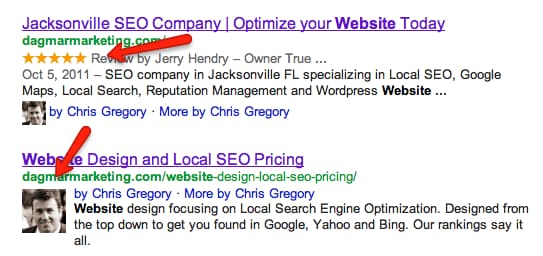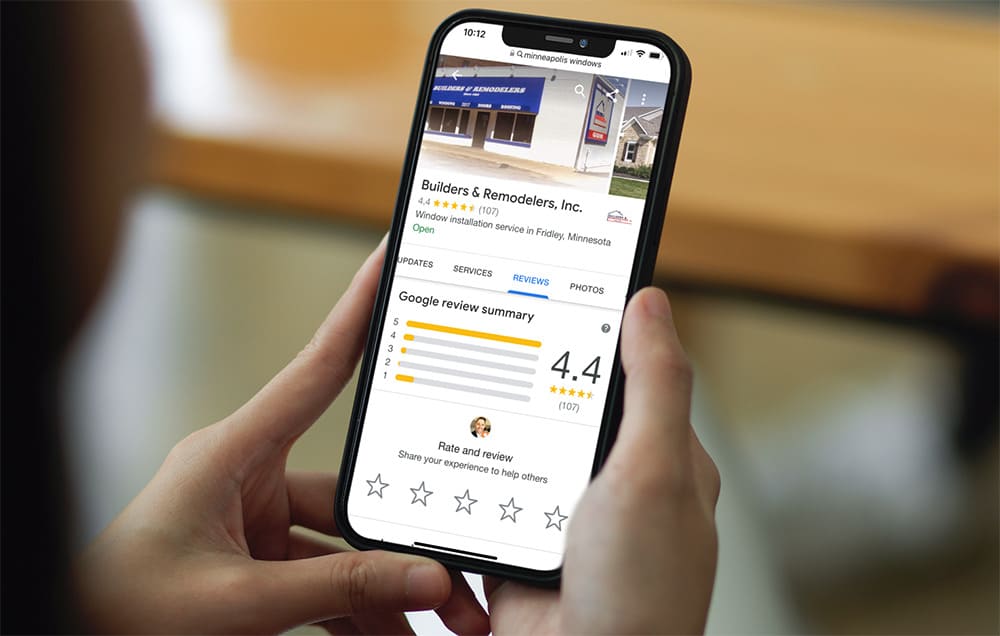SEO Reputation Management
Online reputation management (ORM) is necessary if you’re concerned that false or misleading information about your company may affect it. However, what is this technique, and where should you start?

We’ll define online reputation management in this guide and discuss its benefits. You can highlight a company’s strengths and eliminate its weaknesses with the correct SEO strategy and reputation management techniques.
What Is SEO Reputation Management?
Making sure that users have a positive impression of your brand whenever they see it on search engine results pages is the main goal of reputation management in SEO strategies. This means increasing your social proof, getting happy customers to post about their experiences online, and boosting the likelihood that new prospects will believe in what you have to offer. By emphasizing your dependability, the caliber of your goods and services, and the experiences you’ve had, SEO reputation management helps you establish relationships with potential customers based on trust. Reputation management is essential for every business to implement since it enables you to leverage the power of these reviews to manage your online reputation.
Online Reputation Management (ORM)
Every business runs the risk of receiving unfavorable online attention. The problem is that your brand reputation has the power to make or break it. Users consult online reviews, social media, or search engines before deciding where to spend money. This tactic safeguards your company by assisting you in responding to unfavorable comments before they become out of control.
What is Online Reputation Management
This is the process of keeping an eye on and influencing how people view your company on review sites to counteract negative signals and highlight positive ones. Usually, this entails responding to unfavorable feedback, hiding negative search results, and removing inaccurate details about your company.
The Role of ORM in Local Business
Startups can start from zero and increase their visibility by concentrating on generating positive reviews and producing content that people want to share. Any small firm can use ORM to establish personal relationships with customers to respond to their favorable evaluations. It all comes down to helping clients develop a positive attitude.
SEO Reputation Management Strategies
The fundamental idea behind this crucial point is to employ the following tactics to rank relevant pages from your domain on the first page of search engine results pages (SERPs) for a particular term.

Many reputation management strategies will also help to promote positive news articles, social media feeds, your Google Business Profile, and other pages that can be promoted in Google searches.
Monitoring and Managing Your Online Reputation
Timely action and attentive listening are necessary for the tracking process of review sites. This relates to your overall reputation management plan. Making a plan guarantees that you won’t overlook any potential customers inside your target market. The majority of firms are already keeping an eye on their direct feedback channels, review listings, and social media mentions — all of which are objectives.
Tracking brand mentions and customer feedback
Citations are a sign of a brand’s health for people in different industries. In this manner, you can keep an eye on public sentiment and the effectiveness of your marketing campaigns. Setting up a filter and receiving alerts each time someone uses your brand name or specific keywords is the technique of tracking brand mentions; it may seem easy, but it can help your advertising.
Using SEO tools for ORM monitoring
You can use both specialized SEO tools and reputation management solutions. Analytics that monitor organic search metrics and the general health of a website are offered by networks such as Ahrefs and Semrush. Reputation.com allows you to compile positive reviews and consumer feedback from various sources so you can actively reply.
Optimizing Search Results for a Good Reputation
This is an essential component of ORM and any digital marketing strategy. High search rankings are the result of SEO tactics. Content that you produce that is good for your company can have positive effects, as can content produced by others. Although you have authority over your reviews and articles, you are essentially powerless over those written by others.
Creating high-ranking positive content
There are two essential requirements: first, the information must be easy to read, similar to how people often read text on the internet; second, it must be written in a way that Google search wants to reward it. You may raise your chances of ranking well in search results by producing high-quality content that appeals to audiences.

Suppressing negative search results with effective SEO
How well does this technique suppress negative content in search platforms? To make the unfavorable information far less likely to be discovered by people, it is suppressed to appear on page two of the Google results. The time it takes to have the content taken down can seriously harm your internet reputation, even if it is feasible.
Improving Local Search Reputation
Most prospective buyers make their decisions based on what they read in reviews, and the number of reviews, social media interactions, and the visibility of a particular brand in local listings all influence the general impression. You can manage your reputation; gaining access to local SEO frameworks requires a solid approach that takes into consideration every consumer touchpoint.
Enhancing local search visibility
Positive business reviews are important because your local search input is frequently influenced by general ratings. Strong exposure is maintained, and relationships are improved by correctly responding to criticism and encouraging customers to write reviews. You can use ORM techniques and local SEO tactics, which are centered on improving search rankings and supporting an online reputation.
Managing customer reviews and responding to feedback
Developing a good reputation in the neighborhood might result in more word-of-mouth advice and ongoing company expansion. You can quickly address unfavorable comments if you have a good plan in place. This plan includes answering negative reviews and fixing issues as soon as they are found. Following a bad incident or review, management aids in regaining credibility.
The Impact of Reputation on Search Engine Rankings
Given that this will be the initial impression that users will have of us, having a reasonable estimate is powerful. Therefore, maintaining a positive and consistent virtual image that aligns with our desired message is essential.

A negative online reputation might undermine our credibility and cause users to mistrust us. Google is starting to take user comments more seriously. Therefore, it’s critical to address SEO issues with technical SEO as well.
How Search Engines Evaluate Reputation
Google seeks to present data from reliable sources. The quality of the content, the quantity of backlinks, and the general reputation of a particular online property are all evaluated by the algorithm to establish the authority of a webpage. Because they are regarded as more reliable, websites that generate excellent, thoroughly researched content rank higher. This explains why dependable websites like official government websites, academic institutions, and well-known companies frequently rank well in search results.
Customer Reviews and Their Influence on SEO
Search engines use online reviews as a strong indicator of a company’s legitimacy, relevance, and customer focus, all of which can improve its search engine ranks. Furthermore, customer reviews inherently contain terms associated with the company, its goods, and services, as well as providing content that search engines find valuable. When properly utilized, online reviews can also improve local SEO, increase click-through rates, decrease bounce rates, and establish authority and trust.
Brand Mentions and Their Role in Search Visibility
Brand mentions are used by search engines like Google to show authority. Your brand’s visibility on search engine results pages may increase if the algorithm notices that it is frequently discussed, whether through backlinks or mentions in reviews. You must contextualize them to fully utilize them. You must be aware of who is speaking — clients or rivals — what they are discussing (news, product, customer service, or anything else), and if they are expressing their passion or merely restating the facts.
The Connection Between Online Reputation and Click-Through Rates
Both positive and bad reviews have a significant impact on your SEO strategy, click-through rates (CTR), and conversions. Websites with positive evaluations receive more clicks, and CTR counts how many visitors click on your website instead of just seeing the listing. The truth is that people will trust other users more than they will you, even if your property boasts excellent content and glowing reviews. The converse is true of negative reviews, which might lose you 20% of your user base.
Local Search and SEO Reputation Management
These strategies are what put you in front of clients who are looking for what you have to offer and give them the confidence to pick you. Clients will still remember you if you ignore your reputation, but they will do so for the wrong reasons. Lack of visibility and bad reviews can lose you traffic.

There is a solution, though: interacting with users through good reputation management will enhance brand perception and optimize your ranking in global or local-specific results and on Google Maps.
Optimizing Google Business Profile for Local Visibility
Adjusting your GBP, which serves as consumers’ initial impression of your company, is the first step. Make sure your company’s name, address, and hours of operation are correct and current at all times. Your company will rank higher for certain targeted queries like “café near me” thanks to Google qualities that appear in search results. Display your goods, invite satisfied consumers to write online reviews, and respond as soon as possible. Reviews with good ratings and keywords can increase conversions and optimize local presence.
Local Citations and Directory Listings
In addition to online reviews, images, and descriptions, directories include your company’s NAP information. Listings are external links combined with local citations that reroute potential customers from one website to another. Mentions of your NAP on other websites, platforms, or social media channels are referred to as local citations. Local backlinks to your website are not required in citations. They can be found outside of a local directory and are used as references to confirm a company’s location and existence.
NAP Consistency: Ensuring Accuracy Across Platforms
Consistency in your NAP information is always important to guarantee correct business information across platforms. To make your profile more aesthetically pleasing, provide high-quality images of your store, merchandise, and even team members. Maintaining your listing guarantees that you stay relevant to nearby searches, so optimize your page often with new promotions, holiday hours, or fresh photos. Real visits can be generated from searches with an optimized Google Business Profile.
Leveraging Social Media for Local Brand Authority
One of the easiest ways to engage users and establish trust is through public channels. Keep an eye on brand mentions regularly to see how consumers view your company. Respond to these mentions as soon as possible, responding to compliments with appreciation and appropriately to criticism. Being receptive fosters a feeling of community and demonstrates to clients that you value their opinions. You may establish enduring relationships with your target audience by keeping up a vibrant and active social media presence.
Handling Negative Reviews and Reputation Repair
Although receiving similar mentions can be upsetting, it’s an opportunity to let your consumers know you’re paying attention. Effectively addressing them begins with a methodical marketing strategy that includes admitting the problem, showing empathy for the client, and providing a solution. While private follow-ups might help settle conflicts and keep devoted consumers, public responses demonstrate to others that you value and take customer feedback seriously. This way, you can also recognize issues and patterns in feedback.

Tools to Help Manage Your Online Reputation
By monitoring brand mentions and analyzing sentiment, the proposed software helps businesses respond to criticism and safeguard their reputation. Critical mention warnings are also provided by the majority of reputation management platforms. They are designed to enable you to take proactive measures to improve the reputation of your brand.
Podium & Birdeye – Review Monitoring and Management
The first one involves customers reviewing your goods. You’ll respond to internet trends, automate invites, and improve your relationship with reviewers. By using AI to identify problems and increase sales, Birdeye, on the other hand, assists brands in managing their online reputation.
Google Alerts & Brand24 – Tracking Brand Mentions
It is a free tool for tracking mentions and can be used to keep an eye on competitors and trademarks. You’ll be notified via email as soon as important terms are found once you have set up alerts. One of Brand24’s tools offers information on internet exposure. Additionally, you may keep up with any word related to you on social media.
Hootsuite & Sprout Social – Social Listening for Reputation Management
Brands may use Sprout’s review management, social listening, and sentiment analysis services to continuously monitor their reputation. Hootsuite’s features allow you to combine all of your social listening, social posting, and social messaging into one location.
Ahrefs & SEMrush – SEO and Content Optimization
Both products feature unparalleled backlink analysis, accurate keyword research, and an easy-to-use interface, making them powerful tools for SEO specialists and content marketers. Additionally, SEMrush allows you to find trends within your industry sector. It helps you enhance your pages and evaluates your on-page SEO.
SurveyMonkey & Typeform – Gathering Customer Feedback
The service’s customer feedback programs aid in the establishment of a continuous program that gathers information on a range of metrics over time. However, Typeform has more sophisticated options that make the forms more interactive, like the ability to upload images and create personalized thank-you displays.
ChatGPT & Yext – AI and Automation for Reputation Management
You may better understand how you’re seen online and take action to enhance your reputation by using an AI model, which can monitor, evaluate, and reply to reviewers. With Yext, users can add pertinent search terms to algorithms. Also, it features automated responses so you may be informed about online criticism.
Meltwater & Critical Mention – Crisis Management for Negative PR
When it comes to controlling your online reputation, the first tool makes sense. Meltwater can monitor your social media accounts, spot possible emergencies, and measure opinions. In turn, Critical Mention detects and signals anomalous activity or developing crises, automatically notifying pertinent parties.
SimilarWeb & SpyFu – Competitor Analysis and Benchmarking
Similarweb gives you access to a wealth of information and makes it simple to identify the best businesses to regularly benchmark against. You can learn all of the others’ well-kept SEO secrets by using SpyFu. Find the backlinks, pages, and search terms of rival websites.
FAQ
Why Is Reputation Management Important for SEO?
Online reputation management, or ORM, is essential to SEO since a website will struggle to receive clicks regardless of how well it ranks if people have a bad opinion of its brand. To increase brand credibility and trust, reputation management is crucial. Reputation management makes sure that positive traits, beliefs, and behaviors are continuously conveyed and reinforced by actively observing and influencing public opinion.
How Does SEO Support Online Reputation Management?
Increased visibility is among SEO’s most advantageous effects on search input. Putting a brand in the best possible light for a search is the goal. The performance of target queries and SERPs are the main topics of online reputation management. Finding strategies to increase the ranks of positive material and stifle undesirable ones. Because relevant, reliable, and user-friendly content is given priority by search engines, websites built with SEO best practices rank higher.
How can I monitor my online reputation?
Utilizing software tools to monitor brand mentions online, assessing sentiment, and reacting to criticism to preserve a favorable brand image are all part of brand estimate tracking. Additionally, you can monitor reputations by manually monitoring a search bar regularly and updating your social media accounts to remove any unfavorable comments or criticism.
How do I deal with negative reviews or online complaints?
Consumers anticipate prompt service, and responding promptly to a negative review shows that you respect their opinions and take their issues seriously. If at all feasible, try to reply to unfavorable evaluations within business hours. This shows prospective clients that you are interested in their purchasing experience and are actively involved with them.
How much does SEO Reputation Management cost?
Depending on the variety of services provided and the degree of customization needed, the typical monthly cost of managing one’s internet reputation can be anywhere from $500 to $15,000 or more. That $35,000 is extremely unlikely to be yours; it primarily pertains to businesses with strong search traffic and frequent cycles of negative reviews.





